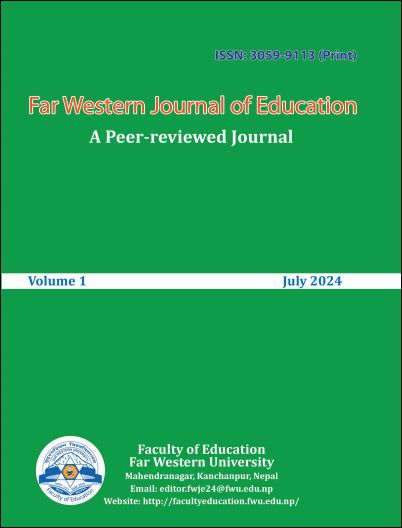Potential of Artificial Intelligence in Education and Ethical Issues
DOI:
https://doi.org/10.3126/fwje.v1i1.68773Keywords:
Artificial Intelligence, challenges, benefits, learning, educationAbstract
Artificial Intelligence (AI) has become a buzzword in education because of its potential to modify how we impart and acquire knowledge. AI has enormous potential including automating administrative chores, personalizing learning, and providing feedback in real-time. One important use of artificial intelligence in education is personalized learning. Analyzing student data to design individualised learning experiences for every learner is also possible by using AI. There are some ethical issues with AI integration in education that need to be resolved. The objectivity of AI systems can only be established by the data used to train systems based on AI. The possibility that AI will eventually replace human teachers raises further ethical questions. AI cannot take the role of human connection, which is necessary for effective teaching and learning even though it can offer personalized learning and real-time feedback. There are lot of promises for artificial intelligence for educational purposes, but at the same time there are also ethical issues that need to be addressed. Protecting student data privacy, ensuring that rather than replacing, AI is utilised to improve human teachers, and training AI systems on objective data are all crucial to ensuring that AI is utilized in education responsibly. The methodology consisted of a thorough evaluation of the literature, which included articles, journals, newspaper articles, authoritative blogs, and books on artificial intelligence applications in education. This paper intends to investigate both the possible benefits of learning with artificial intelligence (AI) in educational institutions and the moral dilemmas raised by its applications.
Downloads
Downloads
Published
How to Cite
Issue
Section
License
Copyright (c) 2024 The Author(s)

This work is licensed under a Creative Commons Attribution-NonCommercial 4.0 International License.
This license enables reusers to distribute, remix, adapt, and build upon the material in any medium or format for noncommercial purposes only, and only so long as attribution is given to the creator.




